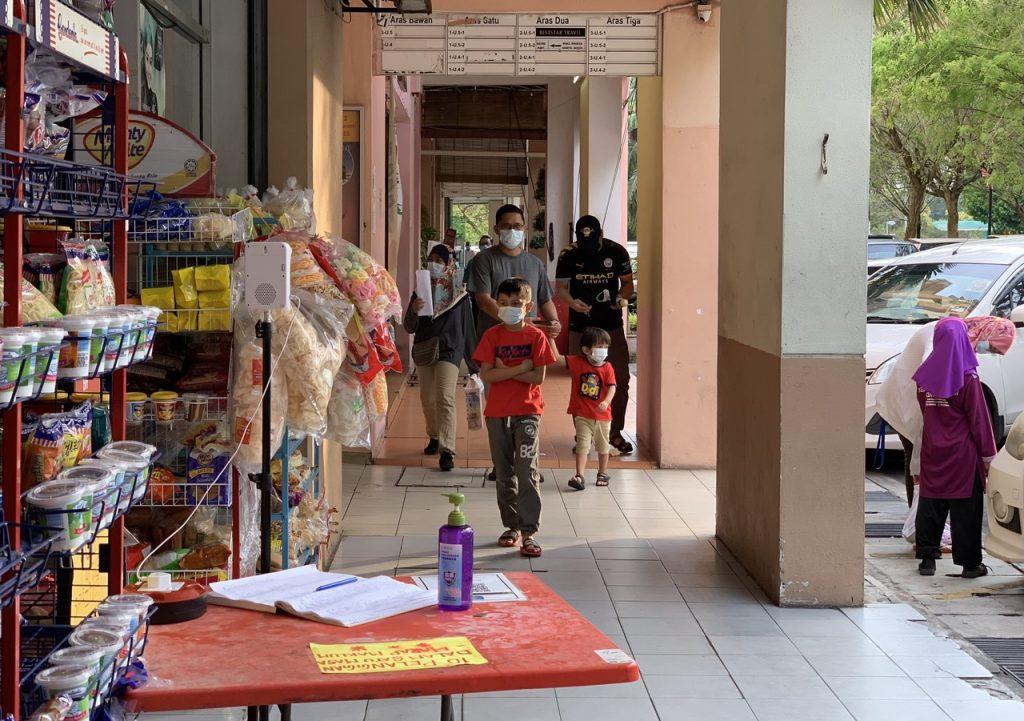Experts back legal aid service by political parties for those fined over SOPs
They also say that the amount of compound issued should be commensurate with the offence, amid public outcry over the hefty ceiling of RM10,000.
Just In
Experts from the medical and political science fields have welcomed efforts by parties from across the political divide to provide legal assistance for those slapped with the maximum RM10,000 compound for violating Covid-19 SOPs, joining others in questioning the move to revise the amount upwards from the original RM1,000.
The RM10,000 compound came into effect earlier this month under the Emergency (Prevention and Control of Infectious Diseases) (Amendment) Ordinance 2021, which also warned of a maximum RM100,000 fine, jail of not more than three years, or both for those convicted.
The revision sparked public outcry with critics saying the amount is too much for those who unintentionally breach SOPs, such as by failing to register before entering business premises or not wearing a face mask in public places.
It also saw political parties including Umno, PKR and MCA moving to provide free services to help those fined negotiate the compound amount.
Political scientist Wong Chin Huat praised these efforts, saying they benefit the people and will help ensure the rule of law while challenging any move towards selective prosecution.
He told MalaysiaNow that many were concerned not only about the amount of compound but the possibility of double standards as well.
“When laws can be bent, people have every right to question whether they are fined not because they break the law, but because they are not VIPs,” he said.
A lawyer from MCA told MalaysiaNow that calls had been pouring in from members of the public enquiring about the party’s free legal service.
“When laws can be bent, people have every right to question whether they are fined not because they break the law, but because they are not VIPs.”
Those who reach out for help are put through a vetting process which includes gathering the necessary information or evidence about the compound, examining CCTV footage at the business premise, and holding discussions with the police.
Dr Raj Kumar Maharajah, president of the Medical Practitioners Coalition Association of Malaysia, said the fine is too high for most people, and that the penalty should commensurate with the offence.
He also questioned the move to revise the compound amount, especially during a time when people are struggling to make ends meet.
“If they cannot pay the fine and are jailed, it is only going to fill up the jails and waste taxpayers’ money,” he said.
Former deputy health director-general Dr Christopher Lee meanwhile said the enforcement of SOPs must be carried out in a transparent and consistent manner.
He said it was more important to take an educational approach to the matter, and that enforcement should be balanced with compassion and empathy.
“RM10,000 is surely viewed as overkill regardless of whether political parties are stepping in to help those hit with the fine.”
“The subsequent guidelines that came later on regarding the ‘discounts’ that can be considered certainly brought more clarity and fairness,” he said, referring to Takiyuddin Hassan’s press conference on March 17 at which the law minister laid out hypothetical scenarios as examples and said that discounts would be given to those who pay their compounds within a week or two of the date of issue.
He also explained how offences would be categorised, with compound amounts corresponding to the severity of the offence.
Both Takiyuddin and Senior Minister for Security Ismail Sabri Yaakob had assured after the increase in compound amount that those slapped with the maximum RM10,000 fine can appeal to the district health office for a reduction.
Ismail said the officers would use their discretion to determine the amount that needs to be paid while Takiyuddin said the amount shown on the compound notice would not be final as appeals could be made to the authorised officer.
Last week, former prime minister Najib Razak who was caught on video entering a restaurant without checking in said he would pay the RM1,500 compound for failing to scan the QR code, adding that he would do so within a week in order to get what he called the “early bird discount” of 50%.
Lee Hwok Aun, from Singapore’s ISEAS-Yusof Ishak Institute, said the conduct of politicians and public expectations have for many years revolved around the provision of social services.
“People go to MPs and assemblymen to seek fixes for infrastructure and amenities, assistance in public complaints, attendance at weddings and funerals, etc. Political parties have from time to time offered legal aid, to fill a gap and, yes, to bolster popularity.”
Noting current frustrations about movement restrictions and perceived or experienced inconsistencies in the enforcement of SOPs, he said the government had brought upon itself “a reputation problem”.
“RM10,000 is surely viewed as overkill regardless of whether political parties are stepping in to help those hit with the fine.”
Wong meanwhile sounded a note of pragmatism about the matter.
“We should not talk naively as if governments and parties are, can or should be selfless angels,” he said.
“If what parties do benefits the people, we should laud their efforts. If what they do disadvantages the people, we should chide them.”
Subscribe to our newsletter
To be updated with all the latest news and analyses daily.
